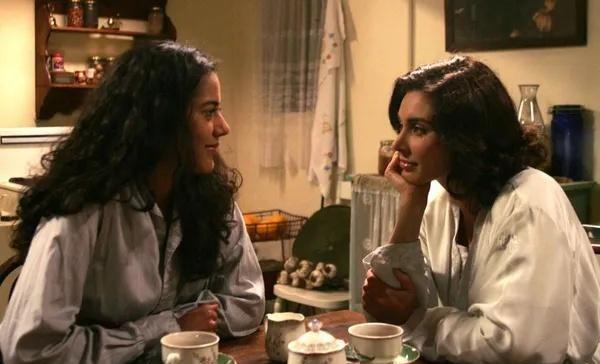Background: In South Africa in the 1950s, it was the period of apartheid system implementation, to put it bluntly, racial discrimination, and all rights were divided according to ethnic background. In this special context, the love of two women breaks through not only gender, system, and law, but also the awakening of women and the consciousness of society.

The protagonists in it are the original team members of "One Heart Is Hard to Change".
Miriam: Married housewife, no independent personality, no property, lonely and strong, accustomed to her husband's violence, and endured her husband's affair with her sister-in-law. She was used to relying on her husband, but she couldn't do without it.
Amira: The landlady who runs a café, doesn't care about the system and the traditional label, she is confident, brave, independent, assertive, cowboy dress, her shop is often full of laughter, she helps abandoned black people, and she is not used to a series of unequal systems.
In this context, the film plays the story of two women falling in love, Miriam's married life is not happy, she found that her husband and his sister-in-law had an affair, only to be patient. Until Amira, dressed as a cowboy, appeared in her repressed life, two beautiful women fell in love at first sight. Amira, who has a spirit of defiance, is a staunch opponent of apartheid, and that's what attracts Miriam.
The feelings of the two women are delicate and delicate, the first time they met Miriam, she was attracted to Amira in jeans, she liked this bold girl who loved to laugh, liked the desserts she made, liked the poems she wrote to herself, liked to look at her with affection in the vast grassland, liked to meet her every moment, liked to teach her to learn to drive Amira's kiss, liked to be close to her, but worried a lot,
She had a husband and a child, and just as they were planning to linger, a burst of baby cries pulled the two back to reality. There are too many unknowns to face, and like other housewives, she lives in the dust and is willing to live a life that can be seen at a glance. But the inner desire and unwillingness made her finally start to resist, yes, when her husband finally used violence, she resisted, she woke up, even if the driving skills were very poor, she still drove to find Amira. That was her hope, to give her love, to give her care, to give her the courage to come out of the numbness of the man.
Amira likes the beauty of this woman, although the other party is married, but still does not affect her own bold love, closed environment, perverted system, can not trap her desire, she boldly and enthusiastically show love to Miriam, bold kiss, boldly want to possess her, although rejected, but her enthusiasm has never diminished, she just wants to be close to this woman, want to be purely good to her,
When Miriam refused her for the last time, she kissed her hard, and ran out alone, in the vast grassland, where she stomped her feet, she was angry, she was unwilling, but she did not compromise with reality. At the end of the film, Miriam smashes the vase in front of the store with her car, and she laughs, happy and reassuring.
The delicate and delicate emotion between the two women in this film is in every flirtation of the fingertips, in every gaze of the eyes. They transcend not only gender barriers, but also racial barriers.
It has a heavier sense than "One Heart Is Hard to Change", which has the elements of ethics, morality, violence, and racial segregation, and it is only the awakening of love and the courage to face oneself.
Love and racial discrimination are like an endless grassland, but hope is like that winding and rugged road, as long as someone realizes, the vast grassland will be full of rebellious crowds, whether you are male or female, gay or heterosexual, first of all you are a person, people must follow their own hearts, not live in the label, many of us love each other, must find a p or t, but love does not need a label, I hope you are the one who loves me, not the label. This kind of love will appear more pure.